The '90s were a weird time for music. Bands like Butthole Surfers and the Flaming Lips got signed to major labels. There was a ska revival. There was a swing revival. And people got down with the idea that the shittier your records sounded — like, recording quality-wise — the more authentic it was.
Granted, there's plenty of a charm to be found in scratchy lo-fi bedroom and garage recording artists, and chief among them was Stephen Malkmus. As the singer and primary creative force in Pavement, Malkmus — along with Sebadoh and Guided by Voices — helped drag lo-fi sounds into the mainstream, or at least into the mainstream of the underground.
Yet there was a wry wit and ironic detachment to Malkmus's songwriting that separated him from any recording aesthetic, as evidenced by his long, fruitful career both with Pavement and as a solo artists. He long ago ditched muffled four-track recorders for both proper studios and, ironically, digital technology that now enables pretty much anyone to make a professional sounding record in their bedroom or garage.
With Malkmus set to deliver his long-in-the-works "electronic" album Groove Denied on March 15, we're break down his prolific output in our Essential Guide to Stephen Malkmus.
Essential Albums:
5. Stephen Malkmus and the Jicks
Sparkle Hard
(2018)
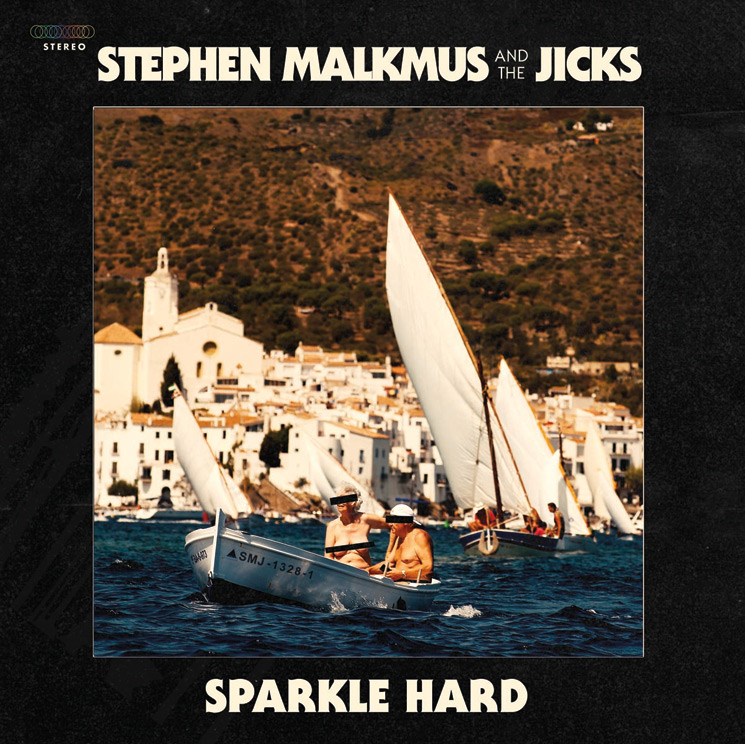
It's hard to put your finger on just why Sparkle Hard, Malkmus's first after an unusually long four-year break, works so well. On the one hand, it has all the hallmarks of his solo career: clean production, a crisp-sounding but loose group of backing musicians and a clutch of classic Malkmus non-sequiturs. Yet, it's underscored by a restlessness; Malkmus feels determined to make sure that Sparkle Hard isn't just another solo outing. Rather than falling into the usual patterns, he continues pushing his sound, giving this recording a nice tension while throwing in a few surprises to boot. More middle-aged indie rock should feel this liberating.
4. Stephen Malkmus and the Jicks
Real Emotional Trash
(2008)
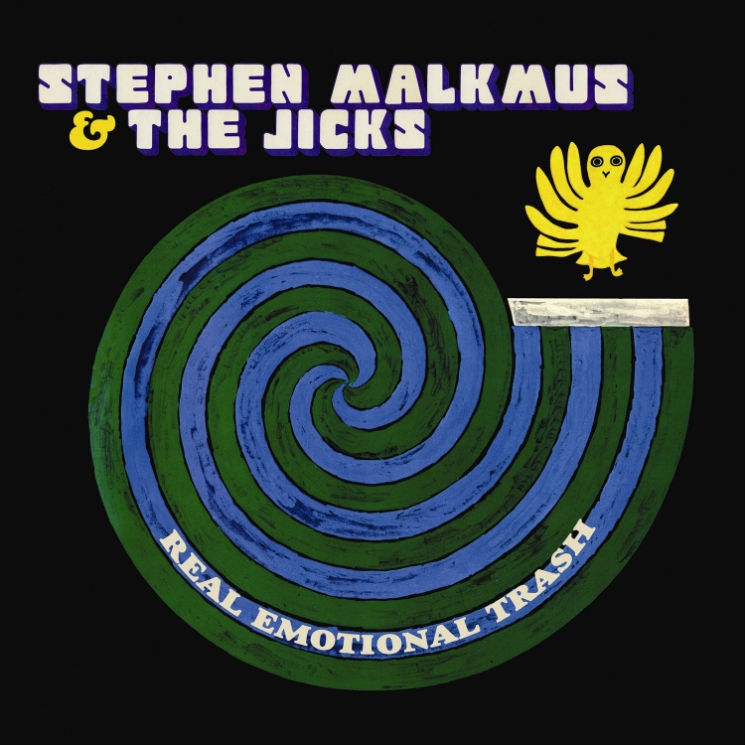
Whereas there's a pretty generally agreed upon hierarchy of Pavement records — the first three are classics, the last two are take 'em or leave 'em — Malkmus's solo work with backing band the Jicks has produced a real grab bag of opinions. That probably has to do with how different each record is from one another. Real Emotional Trash is the band's most "rock" record. More focused than the similarly fuzzy Pig Lib, it hews closest to what people think of as a classic Malkmus sound without falling back on nostalgia. You can probably credit the former to the propulsive drumming of Quasi and Sleater-Kinney beatkeeper Janet Weiss, who makes her Jicks recording debut with this album. If you've never warmed to solo Malkmus, this is the place to start.
3. Pavement
Wowee Zowee
(1995)
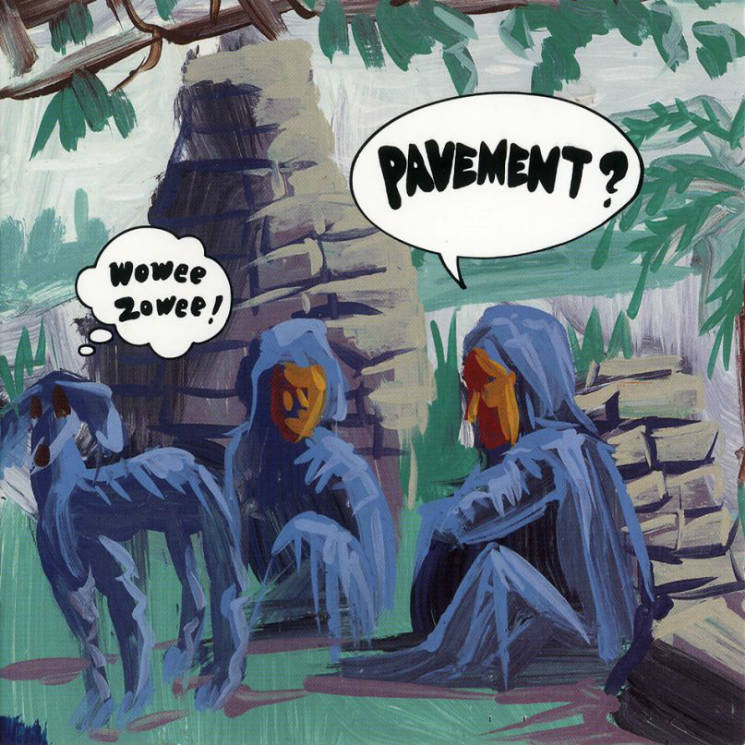
There is no denying that Pavement's third record is very good. Whether it's great — and some fans think it's really, really great — depends on your tolerance for CD-era length everything-and-the-kitchen-sink-type releases. Reportedly, the band had a 10-track version ready to go before Malkmus decided he wanted to add what were otherwise slated to be B-sides to the mix. The result is the band's most varied release; it certainly rewards repeat listens.
2. Pavement
Crooked Rain, Crooked Rain
(1994)
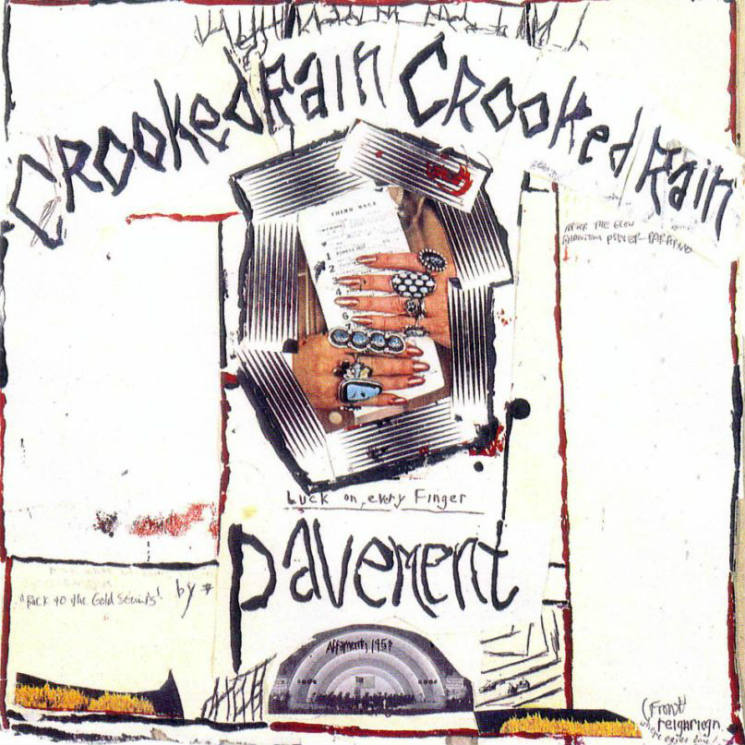
Crooked Rain, Crooked Rain was Pavement's breakthrough, and deservedly so — even if its success surprised pretty much everyone involved, group members included. "Cut Your Hair," whose silly video broke them on MTV, remains a jam. Listening today though, it's hard to believe the band's fortunes were ever in question. Upping the ante in pretty much every way from their debut, the band are at their peak here, knocking out classics with an effortlessness that belied the sharp songwriting underscoring tracks like "Gold Soundz" and "Range Life." The latter contained the diss heard round the underground: "Out on tour with Smashing Pumpkins, nature kids I/they don't have no function, I don't understand what they mean and I could really give a fuck." Malkmus has claimed he meant nothing by it, but in an era when hard lines were drawn between the mainstream and the underground, his words were taken as a rallying cry, elevating Pavement to indie hero status. Luckily, they had a record like this to back them up.
1. Pavement
Slanted and Enchanted
(1992)
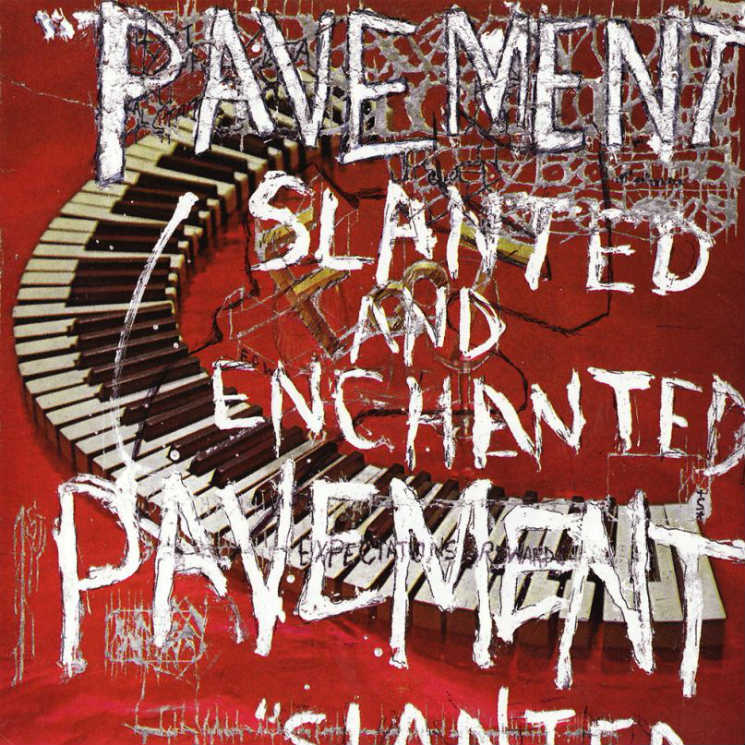
Sometimes you just get things right the first time out. Sure, Crooked Rain, Crooked Rain has (slightly) better fidelity and some (relative) hits, but nothing can quite compare to Gary Young's off-time drums that propel "Summer Babe" — for my money, Malkmus's most transcendent tune. Slanted and Enchanted feels like it shouldn't exist: everything sounds like it's about to fall apart, like the tape in the recorder will get caught and garbled and the whole thing will be lost forever. It gives the band's playing an extra sense of urgency. During the tense build to "Trigger Cut/Wounded-Kite at :17" you can imagine Young and bass player Mark Ibold sharing looks in the studio: "Is this really going to work?" Yes, yes it will. And you'll turn in a stone-cold classic in the process.
Further Listening:
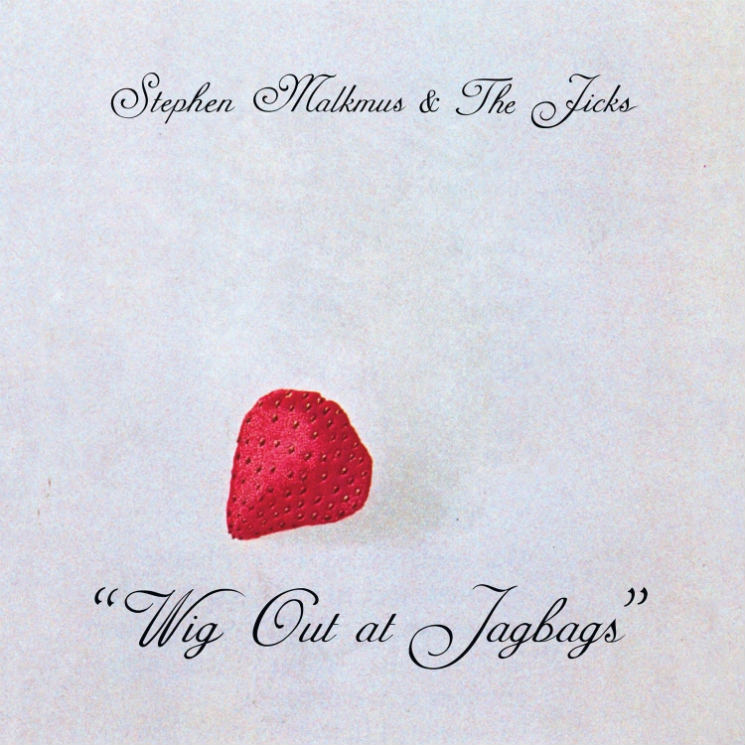
Some equate Pavement's swan song, 1999's Terror Twilight, with their nadir; I am not one of those people. As the first Pavement album I ever heard, I'm actually quite fond of it, though admittedly it swaps Malkmus's sense of playfulness for sincerity. Scott "Spiral Stairs" Kannberg recently called it the band's All Shook Down, and in retrospect, it does feel like a precursor to Malkmus's solo career. But looking back 20 years on, it's a beautiful record — produced by Nigel Godrich! — that showcases just how multifaceted Malkmus's songwriting could and would be.
In comparison, his 2001 self-titled solo debut ditched the (relative) mournful self-seriousness of Pavement's last LP for a lighter and more playful touch. Many have compared it to the oddball Wowee Zowee, even though it lacks that record's shambolic charm. Even though they played on Malkmus's solo debut, the Jicks (Joanna Bolme, Mike Clark and John Moen) didn't get a proper name check until 2003's Pig Lib. Easily the loosest record in the Malkmus discography — and that's saying a lot — it's the product of a band who've found their voice on the road. Interest in it generally depends on your level of tolerance for guitar solos. 2005's Face the Truth, meanwhile, finds the sweet spot between the first two Malkmus solo records, embracing the former's eclecticism and the latter's stellar musicianship. The result is a wonderfully weird album that revels in its musical excesses.
Teaming up with fellow '90s slacker vet Beck, 2011's Mirror Traffic has all the hallmarks and trappings of Beck's more recent work — impeccable production with some hints of dad rock poking out from behind the profundity. Unfortunately, it also shares its producer's recent trend of ditching the idiosyncrasies that made you love them in the first place. 2014's Wig Out at Jagbags (pictured above) shares many similarities to Sparkle Hard; which one is "better" really comes down to personal taste. Despite the immortal line, "We grew up listening to music from the best decade ever," Malkmus once again dodges nostalgia and continues to blaze his own path.
Malkmus's discography is littered with singles, EPs and soundtrack contributions. Some are outstanding, others are curiosities (I've always loved the collaboration with Elastica that Malkmus contributed to Richard Linklater's Suburbia soundtrack), but a deep dive will be amply rewarded. Many have been compiled on the deluxe editions of Pavement's first four albums and standalone compilations.
Finally, there are some music fans who will claim that Malkmus's work with Silver Jews — particularly their 1998 album American Water — was the greatest thing he ever did. Maybe so, but David Berman was the clear creative force behind the group, with Malkmus and Pavement's Bob Nastanovich there to serve his ideas more than offer their own.
What to Avoid:
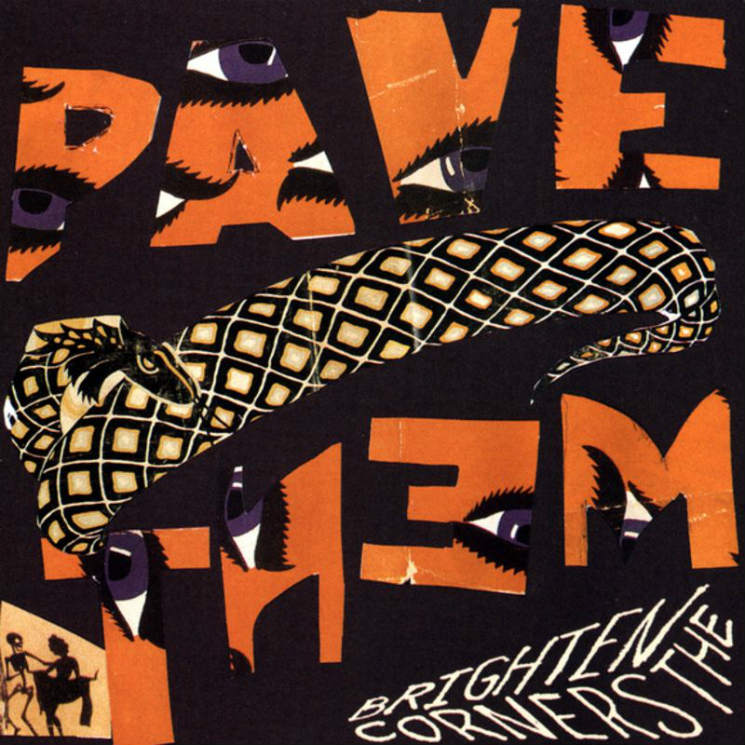
There are no bunk Pavement albums; even their oft-derided final efforts have plenty to offer. Yet, if there's one dud in the batch, it's 1997's Brighten the Corners (pictured above). There are a handful of all-timers here: "Stereo," "Shady Lane/ J vs S" and "Date w/Ikea" all later made the 2010 best of comp Quarantine the Past, released to coincide with the band's reunion — but it's padded with filler and, unlike some of Wowee Zowee's more oddball moments, that filler isn't the least bit interesting. It all just kind of sounds the same.
Pavement's rep as a B-sides band is rightly deserved but even so, Westing (By Musket and Sextant), is more of a fans-only affair. Again, there are some absolute classics — "Box Elder" is one of the band's best — but in collecting the band's first three EPs (Slay Tracks (1933-1969), Demolition Plot J-7, Perfect Sound Forever), you also hear a group still grappling with their influences, trying to find their voice. The Secret History Vol 1 picks up where Westing leaves off, but has an identical tracklist (as well as liner notes) as the bonus disc included on Slanted & Enchanted: Luxe & Reduxe. It's supposedly the first in a five-part series of "shadow albums," but if it serves as a guide, expect the next three instalments to follow a similar pattern.
Malkmus's solo career is similarly devoid of any stinkers, though the live recording of him covering Can's Ege Bamyasi that Domino dropped on Record Store Day back in 2013 is probably best left for completists.
Granted, there's plenty of a charm to be found in scratchy lo-fi bedroom and garage recording artists, and chief among them was Stephen Malkmus. As the singer and primary creative force in Pavement, Malkmus — along with Sebadoh and Guided by Voices — helped drag lo-fi sounds into the mainstream, or at least into the mainstream of the underground.
Yet there was a wry wit and ironic detachment to Malkmus's songwriting that separated him from any recording aesthetic, as evidenced by his long, fruitful career both with Pavement and as a solo artists. He long ago ditched muffled four-track recorders for both proper studios and, ironically, digital technology that now enables pretty much anyone to make a professional sounding record in their bedroom or garage.
With Malkmus set to deliver his long-in-the-works "electronic" album Groove Denied on March 15, we're break down his prolific output in our Essential Guide to Stephen Malkmus.
Essential Albums:
5. Stephen Malkmus and the Jicks
Sparkle Hard
(2018)

It's hard to put your finger on just why Sparkle Hard, Malkmus's first after an unusually long four-year break, works so well. On the one hand, it has all the hallmarks of his solo career: clean production, a crisp-sounding but loose group of backing musicians and a clutch of classic Malkmus non-sequiturs. Yet, it's underscored by a restlessness; Malkmus feels determined to make sure that Sparkle Hard isn't just another solo outing. Rather than falling into the usual patterns, he continues pushing his sound, giving this recording a nice tension while throwing in a few surprises to boot. More middle-aged indie rock should feel this liberating.
4. Stephen Malkmus and the Jicks
Real Emotional Trash
(2008)

Whereas there's a pretty generally agreed upon hierarchy of Pavement records — the first three are classics, the last two are take 'em or leave 'em — Malkmus's solo work with backing band the Jicks has produced a real grab bag of opinions. That probably has to do with how different each record is from one another. Real Emotional Trash is the band's most "rock" record. More focused than the similarly fuzzy Pig Lib, it hews closest to what people think of as a classic Malkmus sound without falling back on nostalgia. You can probably credit the former to the propulsive drumming of Quasi and Sleater-Kinney beatkeeper Janet Weiss, who makes her Jicks recording debut with this album. If you've never warmed to solo Malkmus, this is the place to start.
3. Pavement
Wowee Zowee
(1995)

There is no denying that Pavement's third record is very good. Whether it's great — and some fans think it's really, really great — depends on your tolerance for CD-era length everything-and-the-kitchen-sink-type releases. Reportedly, the band had a 10-track version ready to go before Malkmus decided he wanted to add what were otherwise slated to be B-sides to the mix. The result is the band's most varied release; it certainly rewards repeat listens.
2. Pavement
Crooked Rain, Crooked Rain
(1994)

Crooked Rain, Crooked Rain was Pavement's breakthrough, and deservedly so — even if its success surprised pretty much everyone involved, group members included. "Cut Your Hair," whose silly video broke them on MTV, remains a jam. Listening today though, it's hard to believe the band's fortunes were ever in question. Upping the ante in pretty much every way from their debut, the band are at their peak here, knocking out classics with an effortlessness that belied the sharp songwriting underscoring tracks like "Gold Soundz" and "Range Life." The latter contained the diss heard round the underground: "Out on tour with Smashing Pumpkins, nature kids I/they don't have no function, I don't understand what they mean and I could really give a fuck." Malkmus has claimed he meant nothing by it, but in an era when hard lines were drawn between the mainstream and the underground, his words were taken as a rallying cry, elevating Pavement to indie hero status. Luckily, they had a record like this to back them up.
1. Pavement
Slanted and Enchanted
(1992)

Sometimes you just get things right the first time out. Sure, Crooked Rain, Crooked Rain has (slightly) better fidelity and some (relative) hits, but nothing can quite compare to Gary Young's off-time drums that propel "Summer Babe" — for my money, Malkmus's most transcendent tune. Slanted and Enchanted feels like it shouldn't exist: everything sounds like it's about to fall apart, like the tape in the recorder will get caught and garbled and the whole thing will be lost forever. It gives the band's playing an extra sense of urgency. During the tense build to "Trigger Cut/Wounded-Kite at :17" you can imagine Young and bass player Mark Ibold sharing looks in the studio: "Is this really going to work?" Yes, yes it will. And you'll turn in a stone-cold classic in the process.
Further Listening:

Some equate Pavement's swan song, 1999's Terror Twilight, with their nadir; I am not one of those people. As the first Pavement album I ever heard, I'm actually quite fond of it, though admittedly it swaps Malkmus's sense of playfulness for sincerity. Scott "Spiral Stairs" Kannberg recently called it the band's All Shook Down, and in retrospect, it does feel like a precursor to Malkmus's solo career. But looking back 20 years on, it's a beautiful record — produced by Nigel Godrich! — that showcases just how multifaceted Malkmus's songwriting could and would be.
In comparison, his 2001 self-titled solo debut ditched the (relative) mournful self-seriousness of Pavement's last LP for a lighter and more playful touch. Many have compared it to the oddball Wowee Zowee, even though it lacks that record's shambolic charm. Even though they played on Malkmus's solo debut, the Jicks (Joanna Bolme, Mike Clark and John Moen) didn't get a proper name check until 2003's Pig Lib. Easily the loosest record in the Malkmus discography — and that's saying a lot — it's the product of a band who've found their voice on the road. Interest in it generally depends on your level of tolerance for guitar solos. 2005's Face the Truth, meanwhile, finds the sweet spot between the first two Malkmus solo records, embracing the former's eclecticism and the latter's stellar musicianship. The result is a wonderfully weird album that revels in its musical excesses.
Teaming up with fellow '90s slacker vet Beck, 2011's Mirror Traffic has all the hallmarks and trappings of Beck's more recent work — impeccable production with some hints of dad rock poking out from behind the profundity. Unfortunately, it also shares its producer's recent trend of ditching the idiosyncrasies that made you love them in the first place. 2014's Wig Out at Jagbags (pictured above) shares many similarities to Sparkle Hard; which one is "better" really comes down to personal taste. Despite the immortal line, "We grew up listening to music from the best decade ever," Malkmus once again dodges nostalgia and continues to blaze his own path.
Malkmus's discography is littered with singles, EPs and soundtrack contributions. Some are outstanding, others are curiosities (I've always loved the collaboration with Elastica that Malkmus contributed to Richard Linklater's Suburbia soundtrack), but a deep dive will be amply rewarded. Many have been compiled on the deluxe editions of Pavement's first four albums and standalone compilations.
Finally, there are some music fans who will claim that Malkmus's work with Silver Jews — particularly their 1998 album American Water — was the greatest thing he ever did. Maybe so, but David Berman was the clear creative force behind the group, with Malkmus and Pavement's Bob Nastanovich there to serve his ideas more than offer their own.
What to Avoid:

There are no bunk Pavement albums; even their oft-derided final efforts have plenty to offer. Yet, if there's one dud in the batch, it's 1997's Brighten the Corners (pictured above). There are a handful of all-timers here: "Stereo," "Shady Lane/ J vs S" and "Date w/Ikea" all later made the 2010 best of comp Quarantine the Past, released to coincide with the band's reunion — but it's padded with filler and, unlike some of Wowee Zowee's more oddball moments, that filler isn't the least bit interesting. It all just kind of sounds the same.
Pavement's rep as a B-sides band is rightly deserved but even so, Westing (By Musket and Sextant), is more of a fans-only affair. Again, there are some absolute classics — "Box Elder" is one of the band's best — but in collecting the band's first three EPs (Slay Tracks (1933-1969), Demolition Plot J-7, Perfect Sound Forever), you also hear a group still grappling with their influences, trying to find their voice. The Secret History Vol 1 picks up where Westing leaves off, but has an identical tracklist (as well as liner notes) as the bonus disc included on Slanted & Enchanted: Luxe & Reduxe. It's supposedly the first in a five-part series of "shadow albums," but if it serves as a guide, expect the next three instalments to follow a similar pattern.
Malkmus's solo career is similarly devoid of any stinkers, though the live recording of him covering Can's Ege Bamyasi that Domino dropped on Record Store Day back in 2013 is probably best left for completists.




